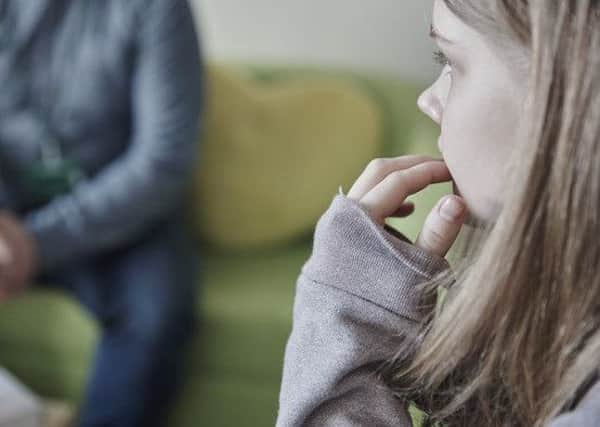Charity tackling sexual exploitation of children


“Around the whole world of that child - from the teachers to the parents - our message is one of protection and prevention; that’s where our Protect & Respect service comes in.”
Protect & Respect is a six-week programme run by the NSPCC in secondary schools across the city, for young people aged 11 to 19 who are potentially at risk of sexual exploitation.
Advertisement
Hide AdAdvertisement
Hide AdBack in September, The Star launched its Make It Better campaign, to highlight the wonderful work being done by Sheffield NSPCC and its safeguarding partners, and the many preventative and proactive services they currently have operating throughout the city. The Star has now joined forces with NSPCC Sheffield, and partners, to inspire its readers to donate to the charity’s local ‘It’s Not Okay’ campaign, to raise funds for and awareness of child sexual abuse and child sexual exploitation in the city.
It’s Not Okay campaign manager, Helen Westerman, explained: “Child Sexual Exploitation is defined as the abuse of children and young people for sexual purposes, through the use of drugs, alcohol, or grooming with presents and attention. Largely, exploitation - as opposed to abuse - is about the young person feeling they’re getting something back. They may believe they’re in a proper relationship and even that they’re consenting.
“Protect & Respect is about sparking those light bulbs moments - the realisation that a 19-year-old plying a 14-year-old with alcohol is exploitation. We want to educate young people to understand that anything that happens to them and their bodies, where they don’t give their consent, or where there’s a difference in power, is abuse and/or exploitation.
“It’s also worth remembering that the service is a positive one; it’s pro-active and it’s solution-based. We think everyone should recognise and know the signs and also know that they can do something about it.”
Advertisement
Hide AdAdvertisement
Hide AdAndrea Combes, a children’s services practitioner who delivers the service in schools throughout Sheffield, said: “The main aim of Protect & Respect is to reduce vulnerablity and increase resilience.
“I firmly believe that, in this modern world, there are many risks. We hold firm with the view that any child is potentially at risk of child sexual exploitation, but when we’re looking to assemble a group for a Protect & Respect workshop, we speak with pastoral and teaching staff to establish whether they can refer to us any students with the potential for raised vulnerability - perhaps someone with more going on than the average teen, chronically low self esteem, body image issues, or someone who is emotionally low. Perhaps they’ve had wobbles in their family situation that have upset them, or they might have learning support issues. In our experience, perpetrators are looking for a chink in someone’s armour, they’re quite clever at finding those who are more vulnerable.
“Ideally, we’d love as many children as possible to take part in this programme. I think we’ve reached about 450 children in Sheffield so far, and currently have three groups running around the city.
“The majority of young people in the groups are girls, but we’ve been focusing lately on delivering more boys groups, especially when it comes to talking about things like consent.
Advertisement
Hide AdAdvertisement
Hide Ad“Our sessions follow a similar path, though we allow for a lot of flexibility, following up on any topics that the school, or the students themselves, bring up as we go along. We look at what makes a healthy relationship, consent, sexual exploitation - online and in the real world - and we dedicate an entire session to grooming.
“We also talk about sexting, online safety, and try to get young people thinking about what might push or pull them personally into exploitation - where their vulnerabilities are. People still tend to think ‘it could never happen to me,’ so it’s important to show how it can engage with your world.
“This is not about us trying to scare young people into never leaving the house, or going online. It’s about teaching them to navigate the world safely.
“We’re also honest with them as much as possible. We know that a lot of survivors of CSE say that it was exciting initially, being invited - as a child - into the adult world, going places, drinking. We create discussions and have frank conversations.”
Advertisement
Hide AdAdvertisement
Hide AdAnd according to Andrea, as much as possible, Protect & Respect is keen to work with children in the early stages of secondary school.
She added: “Research is telling us these discussions need to happen sooner rather than later. We’ve been into about two thirds of Sheffield schools, so there is definitely more work to be done, and we’re also developing some take-home information for parents, so that they can understand the work we’re doing in schools and continue to support it at home.
“Children need safe adults in their lives, and we’ve learned that opening up the communication between child and carer is the best way to protect them. Let’s take the taboo away and remove the perpetrators’ power along with it.”
Visit www.nspcc.org.uk for more details on Protect & Respect.